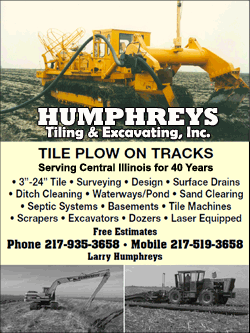|
 By fortifying the state's still-spotty charging infrastructure,
the settlement between NRG Energy Inc. and California energy
regulators was sold as the key to jump-starting enthusiasm for the
non-polluting vehicles. With more places to "refuel," more people
would have confidence that they won't get stranded by a dead
battery. And widespread adoption of the cars would help the state
meet ambitious air quality goals. By fortifying the state's still-spotty charging infrastructure,
the settlement between NRG Energy Inc. and California energy
regulators was sold as the key to jump-starting enthusiasm for the
non-polluting vehicles. With more places to "refuel," more people
would have confidence that they won't get stranded by a dead
battery. And widespread adoption of the cars would help the state
meet ambitious air quality goals.
Instead of Californians plugging in, however, progress has been
plugged up: Just 110 of the 1,040 stations that NRG committed to
installing by early December are ready.
The subsidiary responsible for building the stations over four
years, NRG eVgo, blames a series of unanticipated problems,
including a reluctance among owners of malls, offices and apartment
buildings to provide space for the chargers — even when the company
subsidizes their cost.
The count of new stations so far, released to The Associated Press,
is likely to renew concern over the settlement and whether NRG eVgo
will be able to comply with it. By the end of 2016, the company is
to spend $90.5 million to install at least 10,200 new charging
stations statewide.

State officials promoted the deal as a creative way to resolve a
decade-old legal claim California filed on behalf of electricity
customers amid the state's power crisis. NRG co-owned power plants
sold the state electricity at inflated prices; the company inherited
the entire liability when it took full ownership of the plants.
From the outset, skeptics suggested that the settlement doesn't
adequately compensate Californians or penalize the company for the
alleged price gouging. For one, NRG keeps profits from the chargers.
"How is that a penalty? You're giving them more locations. And
they're earning revenue from them," said John Gartner, research
director of smart transportation at Navigant Research who has
followed the settlement. "Really, really weird."
While California's many environmentally inclined consumers may seem
eager for electric cars — and, led by Gov. Jerry Brown, the state is
relying on 1.5 million zero-emission vehicles to reduce air
pollution — the lack of charging stations remains a barrier.
In a series of interviews, NRG eVgo's vice president of business
development in California both acknowledged difficulties in the
rollout and insisted "great progress" was being made.
"I'm absolutely confident this is not only realistic but absolutely
transformational" for air quality and electric vehicle adoption in
California, NRG eVgo's Terry O'Day said.
So far, little has been transformed, save corners of a few shopping
mall and apartment complex parking lots. O'Day said property owners
have been surprisingly skeptical. Local planning regulations also
can get in the way, he said, despite the enthusiasm from leaders at
the state level.
O'Day is a longtime supporter and enthusiastic promoter of electric
cars.
Soon after federal regulators approved the settlement last November,
he told a former president of the Electric Vehicle Association of
Southern California that 15 fast-charging "Freedom Stations" should
be in the ground by end of March.
[to top of second column] |

A year later, seven are operational. Under the settlement, NRG eVgo was supposed to have installed 40
such stations by Dec. 5. Available to the public, for $10 they allow
cars to go about 80 miles after 20 minutes of charging. The stations
opened so far are at five malls in the San Diego, Los Angeles and
San Francisco Bay areas, and at two Whole Foods markets.
The settlement also envisioned that by Dec. 5, there would be 1,000
"Level 2" chargers that supply enough electricity for 12 to 24 road
miles for each hour of charging. So far, 103 are operational,
including 40 at a high-end apartment complex in San Diego.
Those chargers are available to NRG eVgo subscribers who park at
apartment complexes or office buildings where the charging stations
have been installed. To stimulate demand, the company reduced
monthly rates from $79 to about $35, plus electricity.
The slow start does not seem to concern California energy
regulators.
The settlement contains language that allows annual targets to be
missed as long as the company is making "reasonable efforts." Staff
at the California Public Utilities Commission, which approved the
deal last year, said they believe NRG eVgo is complying.
"You need to build in some elasticity in the timeframe because you
don't know what's going to happen in an emerging market," said CPUC
attorney Chris Clay. "We're optimistic that these guys will pull it
off."
O'Day said his company has submitted permit requests or started to
construct 31 more fast-charging stations and expects to pick up the
pace — and expand into the San Joaquin Valley — in 2014. The
timetable is back loaded: just 40 of the 200 promised "fast
chargers" and 1,000 of the 10,000 promised Level 2 chargers were
scheduled for the first year, with the numbers increasing annually
as year four approaches.

For Paul Scott, who sells the Nissan Leaf in Los Angeles, the
chargers can't come fast enough.
Returning late one night recently from San Diego, he ran into
trouble when one fast charger was dark and a freeway closure sent
him miles off his normal route. His battery ran low and at 3 a.m. he
found himself waiting an hour and a half to get enough juice from a
Level 2 charger to get home. A fast charger would have had him on
the road in 10 minutes.
"I gotta say, we need those chargers in the ground as fast as
possible," Scott said. "I'm disappointed things haven't happened
quicker."
[Associated
Press; JUSTIN PRITCHARD]
Copyright 2013 The Associated
Press. All rights reserved. This material may not be published,
broadcast, rewritten or redistributed. |